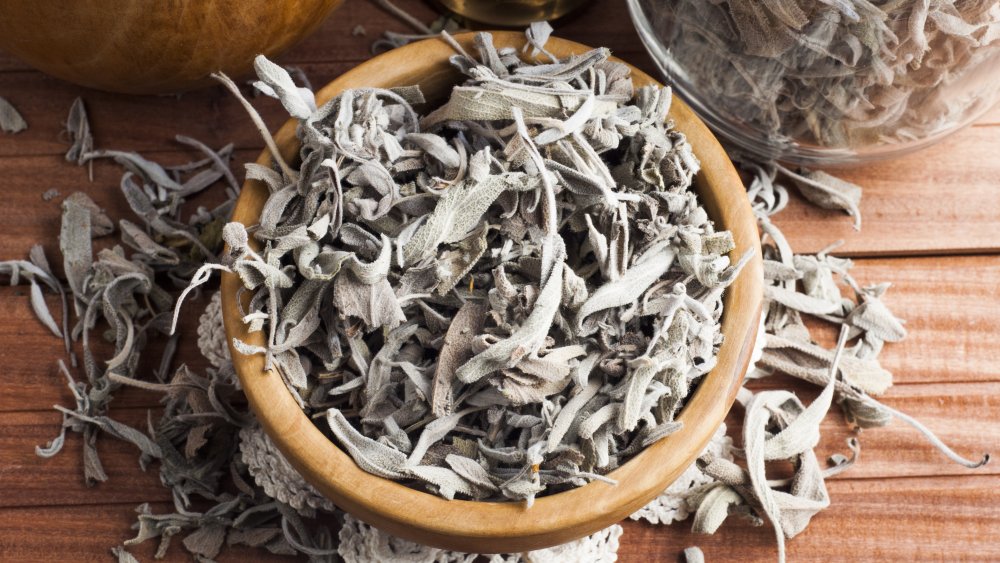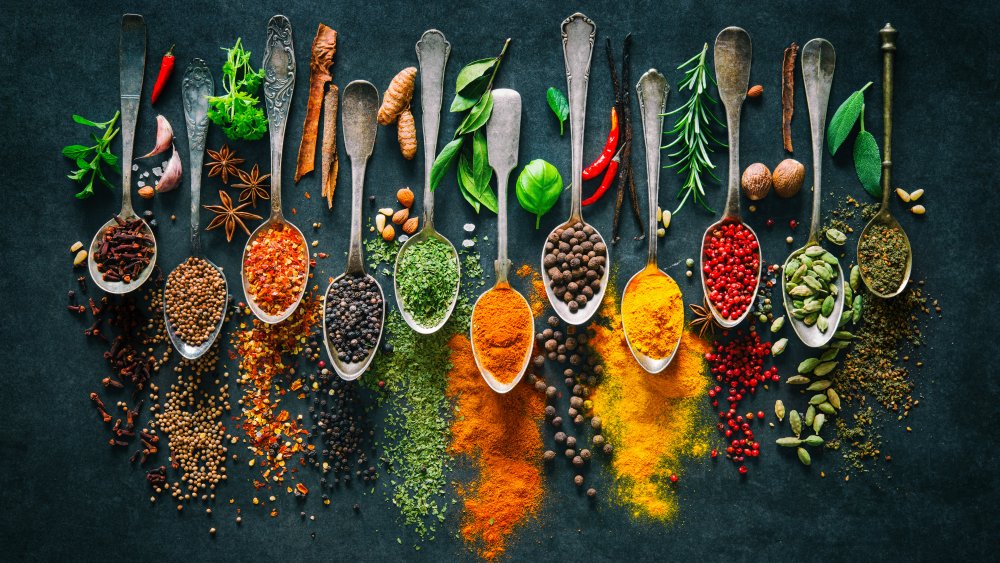Here's What You Can Substitute For Sage
If you're elbows-deep in a recipe and suddenly discover you're out of the sage you need, don't worry too much — there are other options. There are actually many substitutes for sage that will allow you to finish a recipe, though you're still out of luck if you need to ward off evil spirits. However, evil spirits aside, a similar flavor can be found in other spices and seasonings.
Sage, an herb that has a peppery, minty, earthy flavor, comes in different forms. It has a strong scent and a mildly bitter taste, making it stand out in a meal. It is available fresh, dried or rubbed, and ground, and the dried and ground sage is stronger than the other forms. If you have one form but not the specific one you need for your recipe, the other form you do have is the best substitute (via Spruce Eats).
Otherwise, marjoram is the best sub for sage, as it is a member of the mint family and the plants are related. It has a flavor similar to sage and can be used either fresh or dried. As an alternate, you don't have to use much — just measure out a third of the amount of sage required. However, its flavor will not hold up as well as sage, so longer cooking times will require adding the marjoram near the end of cooking (via Raw Spice Bar).
More alternates for sage
The next option is rosemary, which will impart a strong citrus, earthy flavor. This substitute works best with meats. To replace the sage, again, you'll use a third of the amount of sage required.
Thyme is another option. It has a woodsy flavor with mint or citrus notes, and is a popular ingredient in Mediterranean dishes. Thyme works well as a substitute in many different foods, from meats and vegetables to Italian pasta sauces. Thyme is able to withstand longer cooking times. Substitute with thyme by using the same measurement as the sage (via Spiceography).
Poultry seasoning is another option. It's a spice blend used to flavor — you guessed it — poultry. It is also used in stuffing, which is still poultry adjacent, and sage makes up one of its ingredients. It also commonly includes marjoram, thyme, rosemary, parsley, and onion powder. To substitute this, use an equal measurement to dried sage, or a third of the amount of fresh sage, depending on what your recipe calls for. Be careful of other spices that your recipe calls for because if they are also in the poultry seasoning, you can end up doubling them. Just check the ingredients of the seasoning to see what specific herbs or spices it contains.

